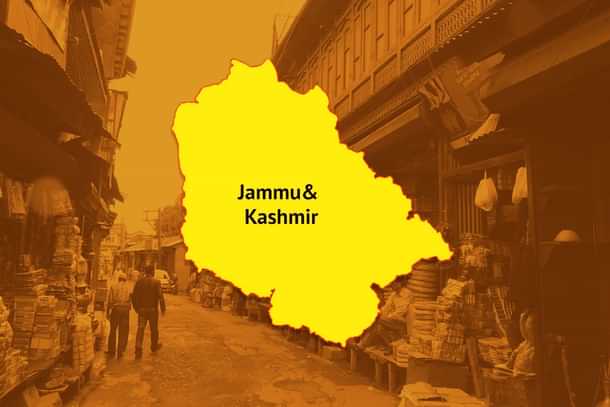The Supreme Court of India is set to consider a plea for the restoration of statehood to Jammu and Kashmir (J&K) is the screaming headline in some newspapers. Given the circumstances and prior assurances from the central government, one might reasonably ask: is this judicial intervention necessary? Or is this merely another instance of political grandstanding?
To begin with, it is important to note that the Centre has repeatedly promised to restore statehood to J&K. In August 2019, when Article 370 and Article 35A were abrogated, the government, led by Prime Minister Narendra Modi and Home Minister Amit Shah, made it clear that the move was part of a larger plan to fully integrate J&K into the Indian Union. They assured that statehood would be restored, albeit after necessary reforms and the establishment of normalcy in the region. This sentiment was further reinforced when the Centre assured the Supreme Court that it remains committed to restoring statehood, particularly once assembly elections are held and a democratically elected government is in place.
Against this backdrop, one wonders why the Supreme Court should even entertain a petition seeking to expedite this process. The Centre’s stance has been consistent, and as a matter of governance, it should be allowed time to deliver on its promises. The abrogation of Article 370 was a bold and transformative move, and the transition from union territory status to statehood is complex. There are infrastructural, administrative, and security concerns that need to be addressed before the restoration of statehood can be completed. Any interference at this point could disrupt the careful balance the Centre is trying to maintain in a region that has historically been sensitive.
Additionally, it’s hard to overlook the political undertones of the plea. The petitioner’s motivations may not be entirely apolitical. There have been murmurs that the plea may have the backing of Congress supporters, given that the party has often used J&K as a tool for political posturing. The Congress, which once claimed to be the sole custodian of J&K’s special status, has struggled to redefine its role in the region post-Article 370 abrogation. Their ambiguity on key issues—such as whether they would seek to restore Article 370 if returned to power—has only added to the perception that they are using J&K to score political points rather than seeking genuine resolutions.

Some political analysts argue that this plea is just another gimmick by the Congress to maintain relevance in a region where it has lost significant political ground. The National Conference, led by Omar Abdullah, once aligned with Congress, has distanced itself from such theatrics. While the National Conference initially expressed outrage at the removal of Article 370, it has since adjusted its stance. Recognizing the improbability of a political reversal on the matter and the remote possibility of an opposition victory in the next national election, Abdullah has opted for cooperation with the Centre in the hope of securing a better future for the region.
This shift in approach is worth noting, especially when compared to the Congress, which seems more interested in confrontation. Across several Congress-ruled states, the party has adopted a combative attitude toward the central government, blaming it for everything from alleged withholding of funds to political interference. This adversarial approach has often led to unnecessary political theater, with little concrete results. In contrast, J&K’s current leadership seems to be taking a pragmatic route by working with the Centre instead of against it.
Finance Minister Nirmala Sitharaman, in various public forums, has also debunked claims that the central government is unfairly withholding funds from non-BJP-ruled states. She has explained in detail how states like Kerala, Tamil Nadu, and Delhi have benefitted from central schemes despite their governments’ anti-BJP stance. Such explanations serve to further expose the lies propagated by opposition parties, including the Congress, in their attempts to paint the Centre as uncooperative.
In the case of J&K, the Centre’s promise to restore statehood is not in question—it is merely a matter of timing. Given the strategic, political, and security considerations involved, the government should be given the space and time to deliver on its commitment. Suspecting the Centre’s intentions or undermining its promises, as the Congress and its allies seem to be doing, is not only counterproductive but also disingenuous. It serves no purpose other than to create an illusion of political relevance in a region where the Congress has largely been relegated to the sidelines.
The filing of a petition in the Supreme Court regarding statehood restoration seems to be more of a political maneuver aimed at scoring points ahead of upcoming elections in other states like Maharashtra and Jharkhand. By bringing the issue to the Supreme Court, certain political actors hope to make headlines, but this will likely prove to be a hollow exercise. The people of J&K, much like the rest of India, are more interested in tangible governance and development than in courtroom theatrics.
Ultimately, the restoration of statehood to J&K is a process already in motion, and no political gimmick can alter that. What the region needs now is patience, cooperation, and a focus on development, not political grandstanding. The Centre has made its commitment, and it is only a matter of time before J&K is fully reintegrated as an Indian state, enjoying the rights and privileges accorded to all states in the Union.






